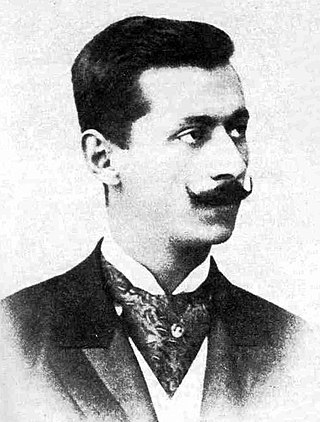
Jovan Dučić was a Herzegovinian Serb poet-diplomat and academic.

Slobodan Rakitić was a Serbian writer and politician.

Desanka Maksimović was a Serbian poet, writer and translator. Her first works were published in the literary journal Misao in 1920, while she was studying at the University of Belgrade. Within a few years, her poems appeared in the Serbian Literary Herald, Belgrade's most influential literary publication. In 1925, Maksimović earned a French Government scholarship for a year's study at the University of Paris. Upon her return, she was appointed a professor at Belgrade's elite First High School for Girls, a position she would hold continuously until World War II.

Isidora Sekulić was a Serbian writer, novelist, essayist, polyglot and art critic. She was "the first woman academic in the history of Serbia".
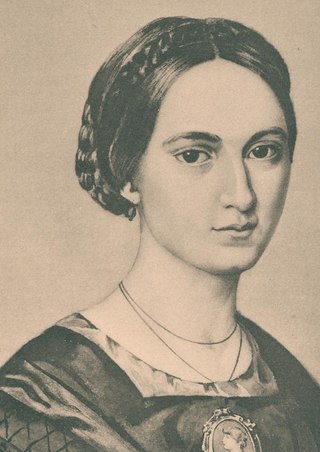
Milica Stojadinovic-Srpkinja (1828–1878) was a Serbian poet, sometimes called "the greatest female Serbian poet of the 19th century".
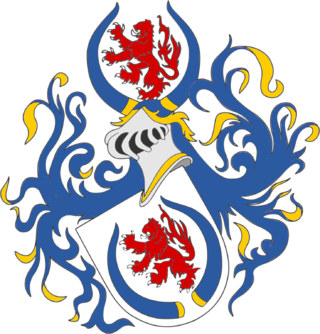
The House of Branković is a Serbian medieval noble family and dynasty. According to genealogies created in the first half of the 15th century, the family descends via female lineage, through marriage with the Nemanjić dynasty. The family rose to prominence during the fall of the Serbian Empire. The original family domains were centered in the Kosovo region. Later family members extended their rule over all remaining unconquered regions of Serbia making them the last sovereign rulers of medieval Serbian state. The dynasty ruled the Serbian Despotate from 1427 to 1459 and their descendants continue to claim the throne of the Despotate Serbia, some having entered the ranks of the Hungarian aristocracy, while other descendants of the dynasty continue to go by a courtesy title.

Jelena Dimitrijević was a Serbian short story writer, novelist, poet, traveller, social worker, feminist, and a polyglot. She is considered to be the first woman in modern Serbian history to publish a work of travel related prose in 1894. During the years 1926 to 1927 she traveled around the world, including the Far East, East Asia, and India, where she was the guest of Rabindranath Tagore.
Clara Janés Nadal, born in Barcelona, is a Spanish writer of several literary genres. She is recognised as a poet and is distinguished as a translator of different central European and eastern languages. Since 2015, she has occupied a seat in the Real Academia Española [1], becoming the tenth woman elected as a member of the RAE.

Jelena Đurovic is a Montenegrin journalist, writer and political activist of a Jewish-Montenegrin origin based in Belgrade, Serbia. Jelena was a founder and Vice President of the Jewish Community of Montenegro. Currently, she is a Chairwoman of OJC SEE and member of the Board of the Montenegrin national council in Belgrade, Serbia. As a journalist, she works as film and TV critic.
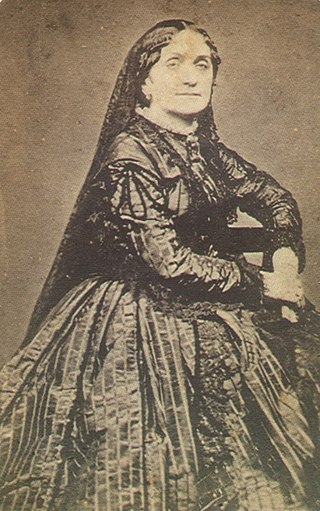
Princess Anka Obrenović was a member of the Serbian royal Obrenović dynasty as the niece of the dynasty's founder Miloš Obrenović I, Prince of Serbia. She was also a society leader and writer whose translations in 1836 were the first literary works compiled by a woman to be published in Serbia. She was the inspiration for a poem by renowned Croatian poet Antun Mihanović, who had wished to marry her when she was 16 and he 41. In 1860, she established one of the first Serbian salons in her home in Belgrade. She was also known as "Anka pomodarka".
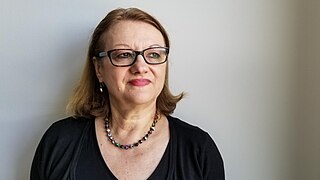
Biljana D. Obradović is a Serbian-American poet, critic, translator, and professor of English who has lived in Yugoslavia, Greece, India and the United States.

Tanja Kragujević a Serbian poet, was born in 1946 in Senta, northern Vojvodina. She has been a member of the Serbian Literary Society since its foundation in 2001. By the decision of the Government of Serbia, 24 December 2009, she was awarded the title of top artists in the field of literature. She lives in Zemun.

Vladislav Bajac is Serbian writer, poet, journalist and publisher.

Eleonora Luthander, born in Kruševac, Yugoslavia, was a Swedish and Serbian poet, columnist and translator.
Sonja Veselinović is a Serbian writer and assistant professor of comparative literature at the Philosophical Faculty of the University of Novi Sad.
Aurora Luque Ortiz is a Spanish poet, translator, teacher, and writer based in Andalusia.

Ana Ilić is a Serbian poet and student of philosophy from Vladičin Han. She is one of the rare people in Serbia who suffers from Friedreich's ataxia.
Srba Mitrović was a Serbian poet, translator and librarian.
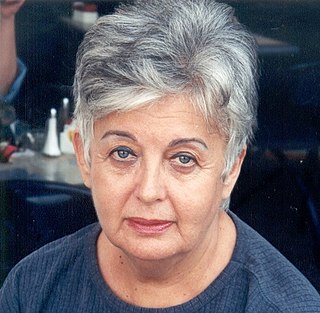
Ana Šomlo is a Serbian-Israeli writer and journalist who writes short prose and novels. She is also a prominent translator from Hebrew into Serbo-Croatian.















